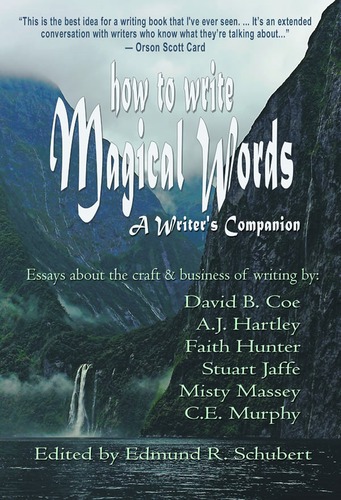 |
But when a Lady mistakenly drops her baby from a second-story scaffold, Procne can’t simply watch him die. She catches the injured child and uses magic in front of an entire parade to save his life. But rather than thanking her for rescuing the child, the Jade Guard—Altaevia’s masked, magic-shielded police officers—throw her in jail. But Procne is sentenced to slavery at the Magic University rather than death, and when a Master Magicsinger named Bayek forces her to dress as a boy and then begins to teach her magic, she knows there's something he desperately wants.
Procne soon learns that Bayek is one of two living people with Negravia—the branch of magic allowing a person to manipulate the relationship between spirit, body, and soul—and the other is Procne. Even more disturbing, however, is the fact that Procne has two souls: her own, and the soul of her twin brother, which she unknowingly bound to herself in a desperate attempt to save him. Now he is a hodios, a soul trapped between the realms of the living and dead, and before she can truly learn to control her magic, she must let go of the last connection to her brother.
To save a dying magic, Bayek is willing to face excommunication for teaching a girl. Procne is willing to risk death, but not because she cares about Negravia. For the first time, a commoner is being given a chance at power, and Procne is determined to use that power to bring down the system that killed her brother and made her an outcast.
**************
I honestly don't know how long this project will be. I had original concepts for this story back in middle school, but they were really vague and got totally swept out of the way when I went to high school and started creating characters like mad. Then in University, I wrote a version of this story for a class, and fleshed out quite a bit about the two characters Bayek and Procne, and some about Procne's twin Philius, and the basic structure of the world.
It was received in a very ho-hum fashion (unsurprising, considering the largely literary crowd, but that's a university advanced writing class for you), so I set it aside and went back to work on the Mark of Flight. Well, right after Raven finished telling me "you could do better" on "The Mark of Flight" (which prompted me to rewrite the whole damn book), she read my original 30-40 pages of Beggar's Twin, and slammed it down on the floor at my feet.
"WHY DIDN'T YOU WRITE THIS?" she said. "The world hooked me right away!"
And a fan was born. I started working on the magic system and developing more about the structure of the society and its conventions. When I got back to the US (and right as I was in the thick of writing HELLHOUND), Raven helped me develop some of the world, and let me know when something wasn't working (IE, the main romance, and why). In case you couldn't tell, she, Adryn, and Skrybbi are my springboards for almost everything.
So this past March, when Japan exploded and Adryn briefly came home, the three of us played around with some character concepts, and they helped me work on some of the different (literal) tiers of society. I'm especially excited about the revolutionary aspect of this book, and the emotional turmoil that results when the shit hits the fan (oh, you know it will).
INTERACT: Do you prefer single books, duologies, trilogies, or series?
READ THE OTHER POSSIBLITIES:
Roost
Act of Mirrors
*Art: Devil's Eye, by Yang Qi









